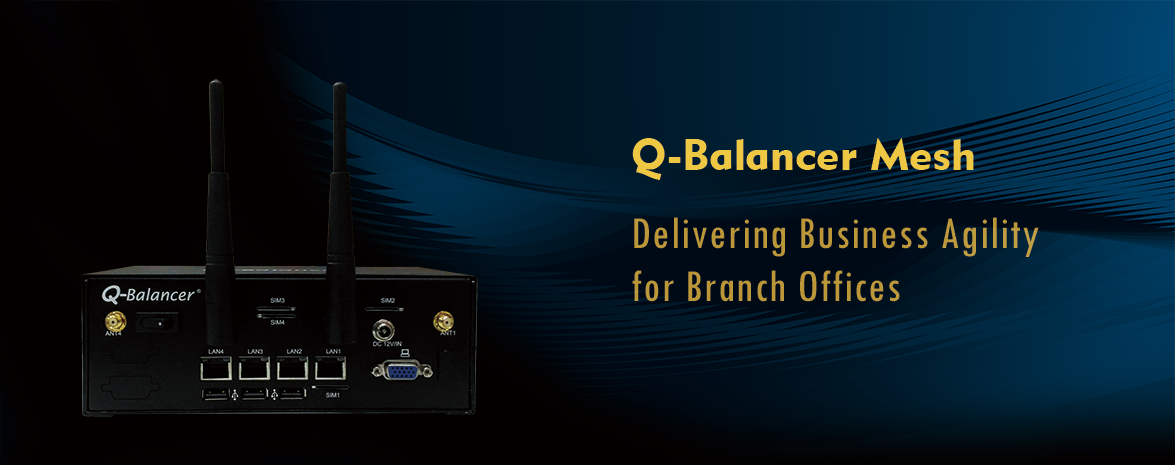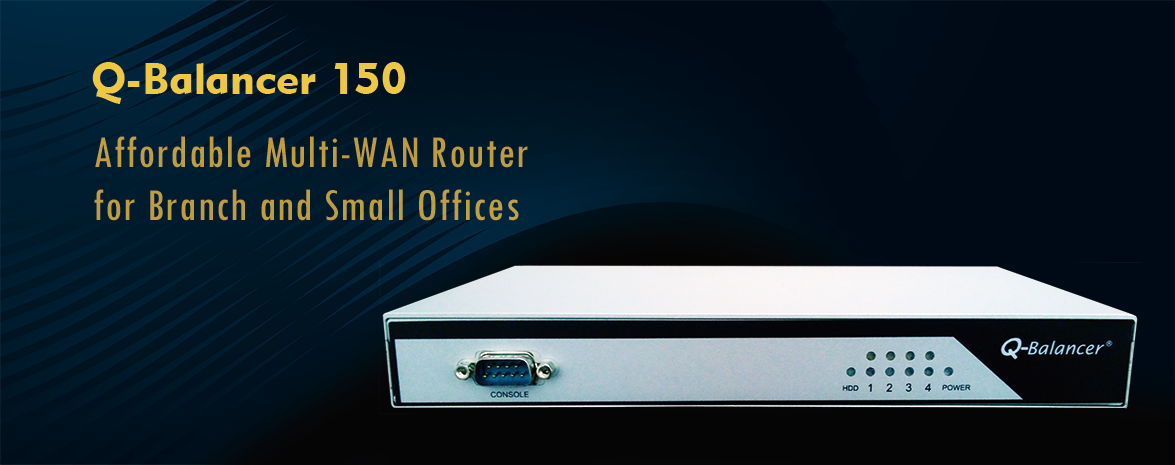LAN-to-LAN Traffic Failover and Load Balancing
Virtual Private Network (VPN) is a widely deployed technology for multi-location enterprises to build a secure communication over an IP network between the geographically separate sites. It has become one of the most common tools for data security as there is a greater need for encrypting communication than ever before.
IPSec VPN is one of the commonly used VPN technology in enterprise networks, and the tunnel is established based on a single internet circuit, for example, an ADSL line. However, should the circuit fails, there is no way to keep the connectivity for the LAN-to-LAN access.
Q-Balancer supports IPSec tunnel termination with third-party VPN devices. Any VPN device supporting standard IPSec VPN may terminate IPSec tunnels on Q-Balancer appliance. This enables enterprise network to build IPSec tunnels with branch network where there is already a legacy VPN device deployed.

IPSec Tunnel Termination between Q-Balancer and third-party VPN devices
It is also allowed to terminate IPSec tunnels between Q-Balancer devices, and this type of deployment provides enterprise networks with more flexibility and reliability.
 IPSec Tunnel Termination between Q-Balancer devices
IPSec Tunnel Termination between Q-Balancer devices
> Failover and Load Balancing LAN-to-LAN Traffic Across IPSec VPN Tunnels
With Q-Balancer devices deployed at both ends, multiple IPSec tunnels can be formed at the same time; in the event of WAN outage, Q-Balancer will divert the LAN-to-LAN traffic to the remaining active tunnel(s). This ensures site-to-site network connectivity between business locations within an enterprise. When more bandwidth is required to accommodate the growing demand, it would be possibly difficult to increase bandwidth capacity, even though the traditional NAT-based WAN load balancing technology is not applicable. To increase the bandwitdh capacity between site-to-site, Q-Balancer is able to distribute LAN-to-LAN traffic across multiple tunnels based on policy-based routing. This provides enterprise networks with more flexibility, bandwidth capacity, and reliability.

Failover and Load Balancing LAN-to-LAN Traffic across IPSec Tunnels
Top Benefits
> LAN-to-LAN connectivity will remain up and running even if outages occur on one of the WAN links.
> Speed is increased as LAN-to-LAN traffic is distributed across multiple IPSec tunnels by sessions.
> It can be flexibly deployed anywhere in the world, and built on WAN transports of any type.
> It works with any VPN solutions that support standard IPSec.
> Military-grade encryption is offered for the data passing through the tunnels.
> Additional data protection is provided through spreading LAN-to-LAN traffic across IPSec tunnels.
























































